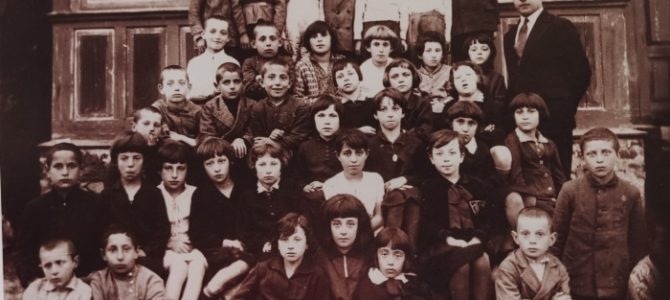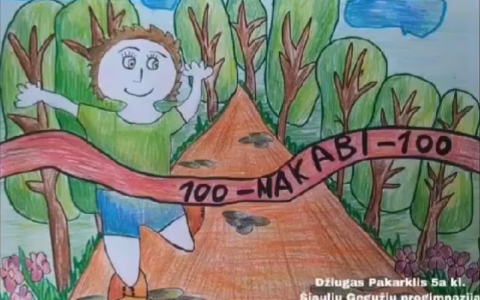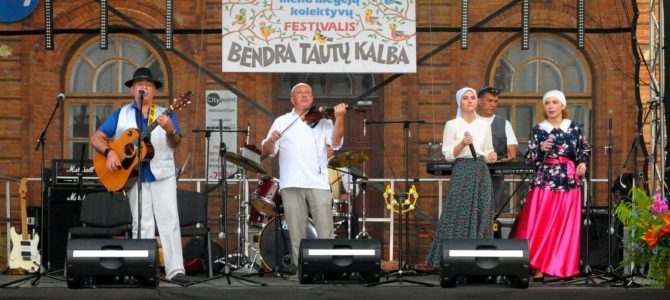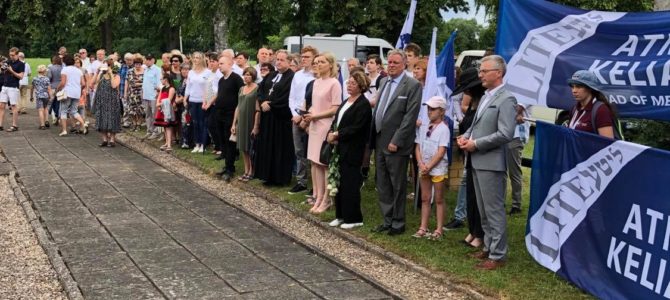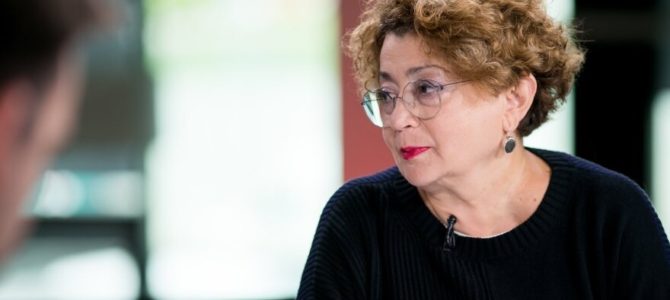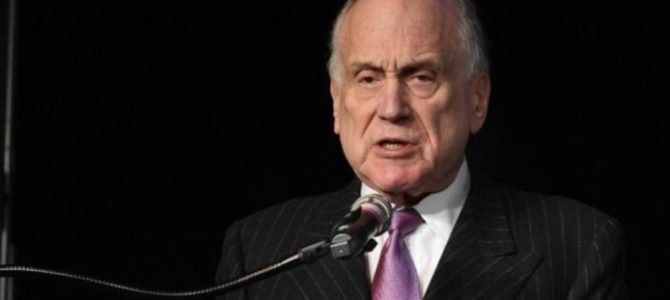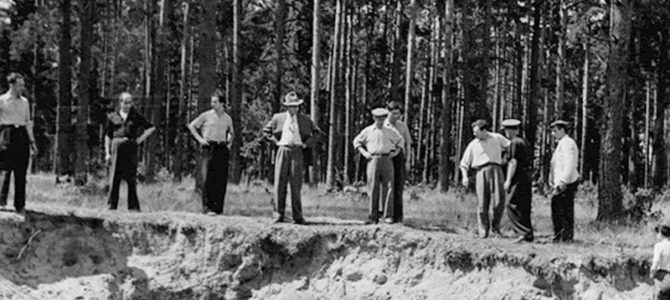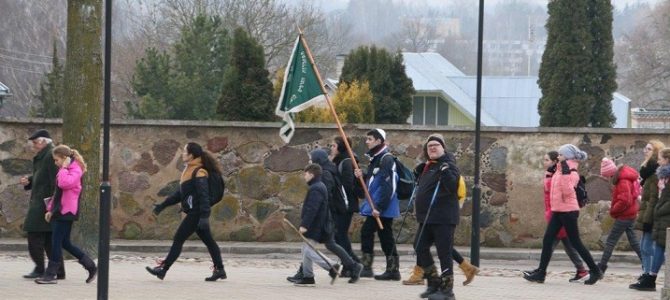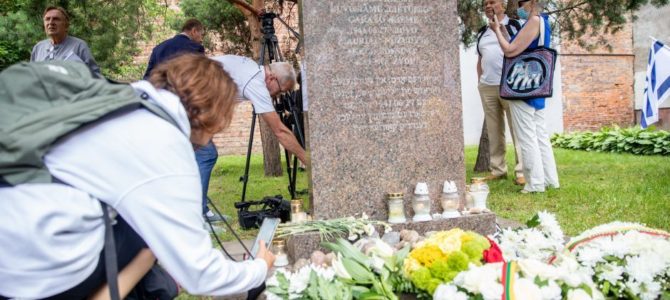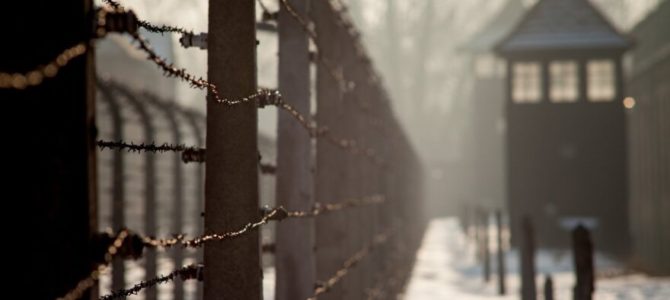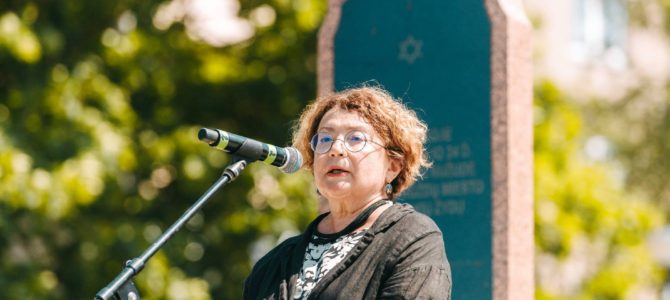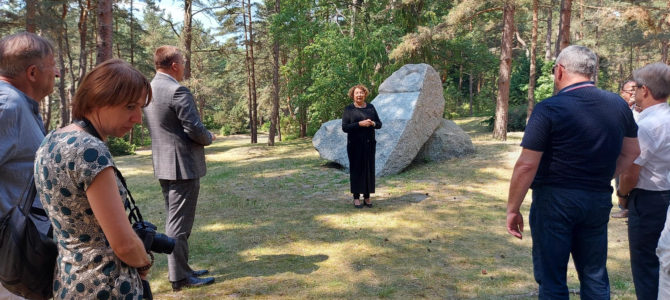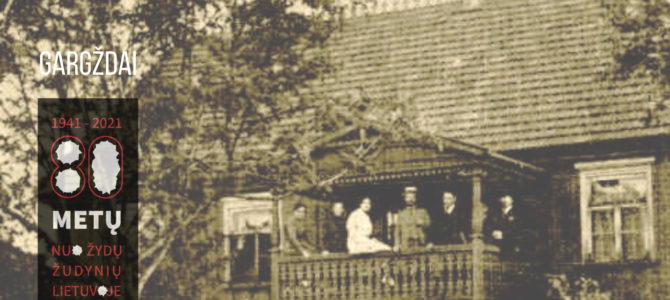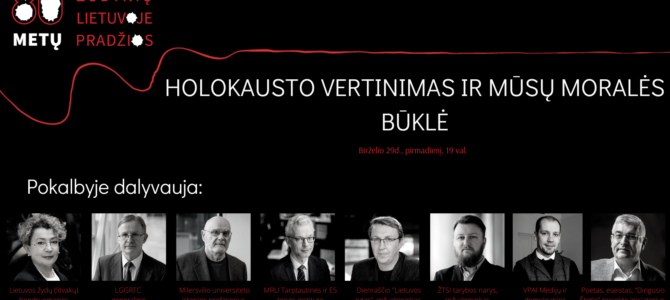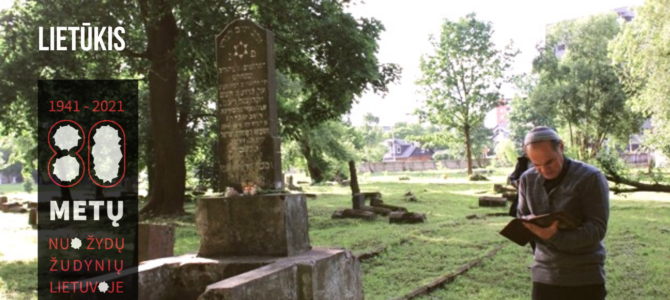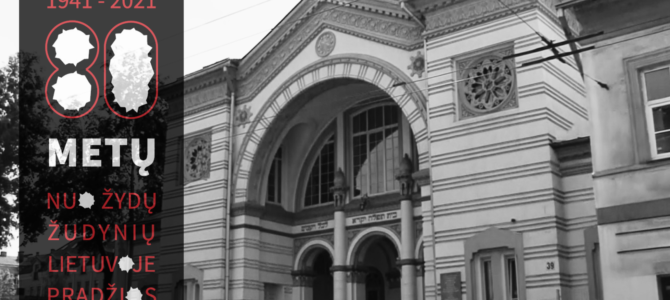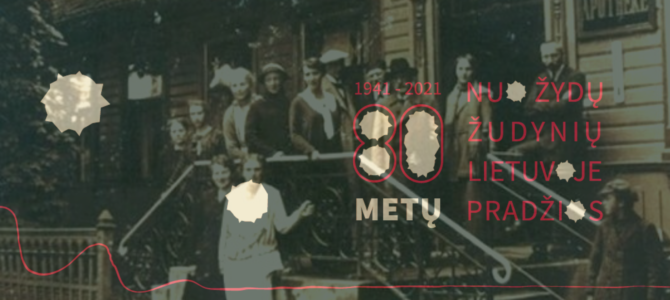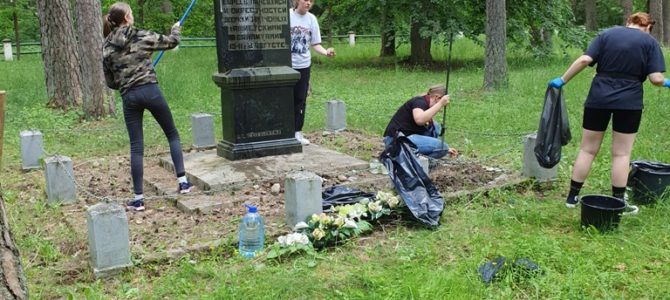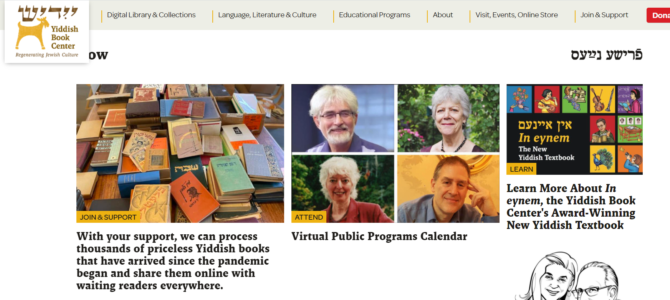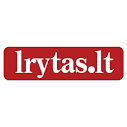
The A. and M. Miškiniai Public Library in Utena (Utyan in Yiddish), Lithuania, hosted a presentation of the only Lithuanian translation of a zakhor or memorial book in Yiddish about the city and region of Utena (the region includes Molėtai, Anykščiai, Vyžuonos and other locations. Incredibly, it took the book 42 years to reach the Lithuanian reading public: it was published in Tel Aviv by Nay Leben in 1979 under the title “Yishker-bukh Utyan un umgegnt.”
The translation and publication was the initiative of cultural historian Sandra Dastikienė as part of her project “Old Neighbors” to educate the public about the Jewish community, Jewish culture and the Litvak legacy in the Utena region.
“The old neighbors return to their towns in different ways–as works of art on the streets, through live appearances–but we are really missing the authentic history. This book fills that gap. It’s not an academic work, not an historical study, but the real memories of Jews who survived the Holocaust or left Lithuania before it. It raises more questions and presents a lot of answers,” Sandra Dastikienė said.
The recollections were collected into a single zakhor book from 1945 to 1979 in Israel. Roma Jančauskienė has long been interested in the history of the Utyan Jews and when she learned of the existence of this book tried over an extended period to buy a copy on the internet, unsuccessfully. About four years ago she finally did buy a copy on eBay, in Yiddish of course.


